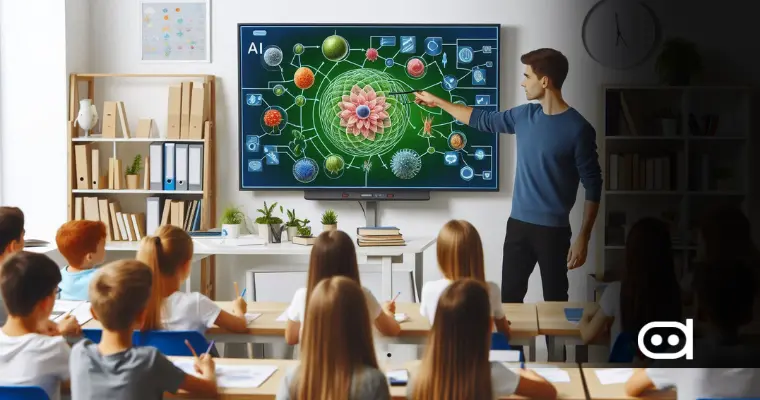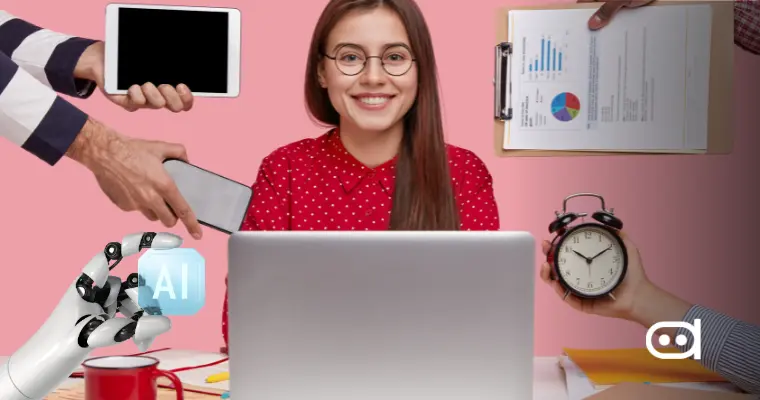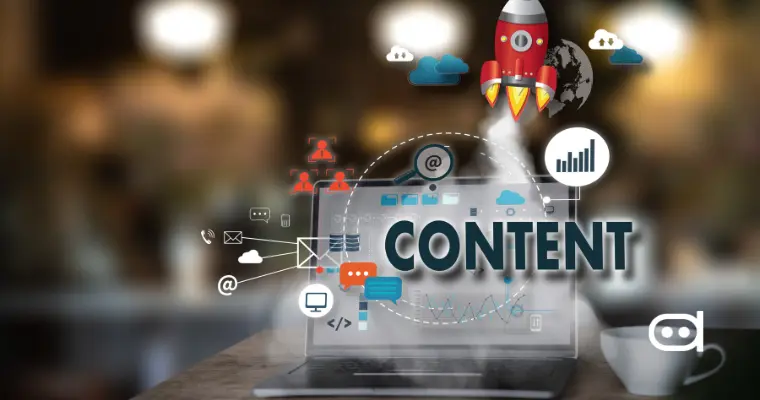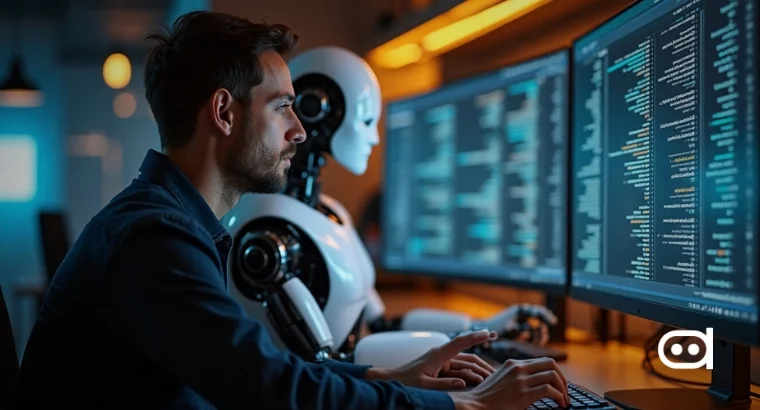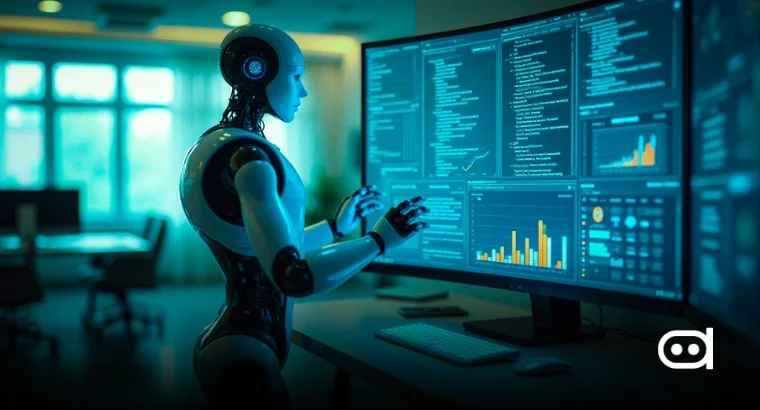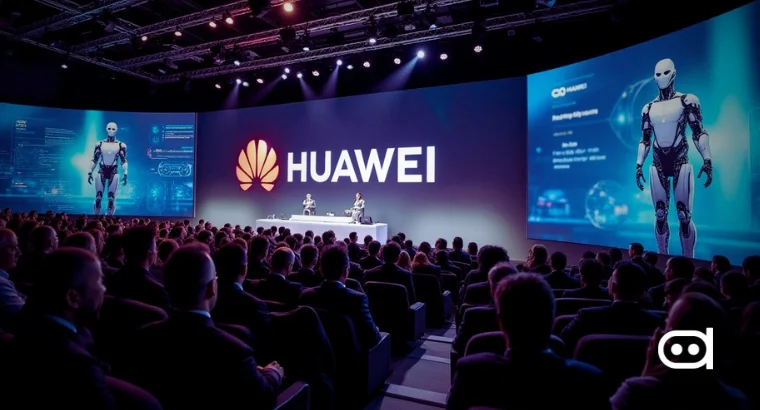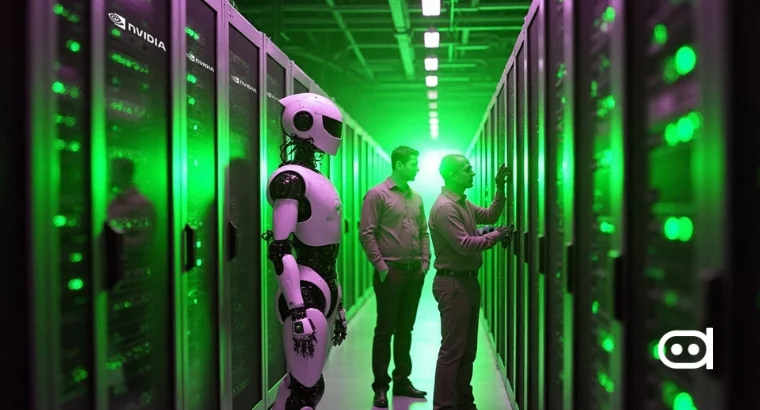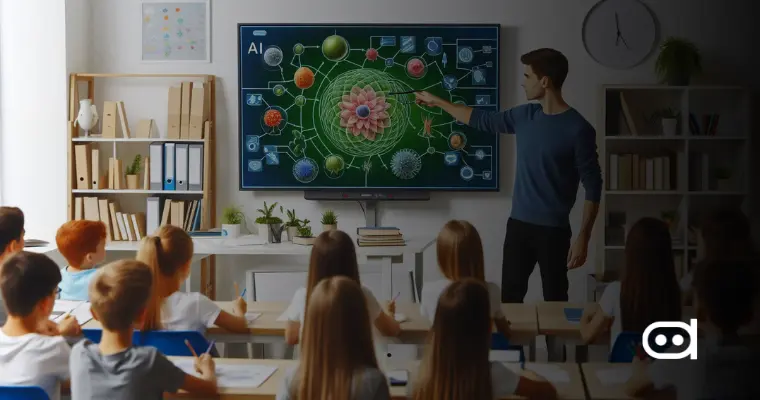
AI has become a magical tool that is transforming sectors across the globe and improving productivity levels. Educational outcomes have become easy to achieve, and administrative functions have been optimized through the assistance of AI. The more sophisticated AI becomes, the deeper and more widespread its roots will be in classrooms and institutions, revolutionizing education in an even more personalized, effective, and accessible way.
These include adaptive learning systems that tailor to each student’s interests and needs, as well as the use of technology to automate administrative functions. Another example is AI tutor applications, which provide students with interactive, immersive learning opportunities. This new technological revolution is bringing deeper outcomes in education by democratizing opportunities and providing more access to all.
Opportunities for AI in Education
One of the many aspects in which AI can potentially revolutionize the education system includes making administrative tasks easier and paving the way for more personalized learning experiences for students. These are the main opportunities of artificial intelligence for education:
Tailored Learning
The best AI education tools will significantly assist educators in moderating the learning environment to each learner’s needs, strengths, and weaknesses. Adaptive learning platforms gather performance data and provide a customized set of materials and exercises designed to bridge the knowledge gap. Learners progress at their own pace relative to the subject, clearing any possible misconceptions that may arise and matching the learning pace of these learners.
Efficiency in Administrative Task
Keeping records is one of the time-consuming administrative tasks that most teachers need to take care of. AI can take over these kinds of administrative processes, leaving teachers with a free schedule to spend time on more important aspects of education. AI could also speed up the process by grading multiple-choice tests and providing feedback on written answers. Education systems fueled by AI can be involved in checking, scheduling classes, and even locations to optimize the timetable. Such innovations greatly enhance productivity in institutions because they reduce the workload and operational bottlenecks.
Improved Engagement
Learning can become interesting, lively, and intense through AI technologies such as virtual reality (VR) and augmented reality (AR). Engage students by bringing abstract ideas to life and creating an engaging learning environment. Better engagement strategies can lead to better learning for students, ensuring that the classroom never becomes boring or disinteresting.
Challenges Faced by AI in Education Sector
While AI has numerous potential advantages, some problems with AI in education need to be addressed to utilize its benefits to the maximum.
Equity and Accessibility Issues
Several AI tools rely on a stable internet connection and robust hardware, which the vast majority of locations and schools do not have. This creates a digital divide, which unfortunately leads to educational disparities and leaves underserved communities behind.
Data Privacy and Security Concerns
One of the big challenges of AI systems is that they collect and analyze copious amounts of student data, raising concerns about their privacy and security. If suitable data protection measures are not implemented, sensitive information may be misused or become vulnerable to cyber threats. This also raises concerns regarding the level of transparency with which each institution collects, stores, and uses this data.
Ethical Problems
The growing use of AI in education prompts ethical concerns about its application. For example, it may make human teachers less important, which will reduce personal interaction in education. There are also possible violations of individual freedom due to the monitoring of students’ behavior through the AI system.
Bias in AI Algorithms
AI algorithms are as unbiased as the training data. In fact, without diversity in the training data, these systems will replicate an already biased society, resulting in unequal educational opportunities. Imagine a scenario where biased algorithms specifically favor certain groups when applying for admission or while allocating resources.
Solutions to Overcome Challenges of AI in Education
Improve Access
In order to prevent digital divides, governments and organizations must investigate the affordability of devices and the Internet in underserved areas and the provision of infrastructure. They can also collaborate with educational institutions so that AI tools are accessible to every student.
Improve Data Privacy and Security
Educational institutions can strengthen the safeguarding of student information through encryption methods and secure storage systems. Informing stakeholders about the collection, use, and sharing of data is a crucial practice of transparency. Regular audits can also go a long way in maintaining high privacy standards.
Establish Ethical Guidelines
Clear ethical standards should govern the application of AI in education. Teachers and administrators alike need to ensure that AI functions to supplement their jobs rather than replace them. Responsible usage also establishes boundaries for AI capabilities and actions, such as avoiding invasive surveillance methods.
Address Bias in AI Systems
To counter bias, AI models should train on diverse datasets that embrace different cultures and socio-economic backgrounds that students are from. Additionally, periodic bias checking and algorithm updates should bring about further fairness. Cooperation with ethicists and education experts has also helped create more inclusive AI systems.
Future of AI in Education: What’s Next?
Natural language processing and machine learning will proliferate to make educational tools more sophisticated; therefore, the future of AI in education is indeed bright. With virtual tutors, students can grasp complex subjects or topics that may be otherwise difficult to understand. Thus, education systems can represent AI virtually in various ways and provide real-time tutoring services tailored to help students understand the topics.
If you are wondering how AI will affect education in the future, then AI also plays a significant role in lifelong education, where it would help professionals reskill with adaptive learning. Moreover, teachers could utilize AI-enabled analytics to gain insights into students’ performances and make data-driven decisions.
This perspective requires an even-handed approach. Educationists, technologists, and policymakers will collaborate to ensure the responsible application of AI in addressing issues such as accessibility, equity, and ethics. AI and the future of education will undoubtedly coexist if the appropriate solutions are implemented.
Conclusion
AI has the potential to revolutionize education and bring a fair share of opportunities in personalized learning, reducing administrative effort and encouraging student engagement. However, the integration of AI into education requires careful consideration to tackle issues such as unequal access, data privacy, and algorithm bias. While making innovative use of AI, the education sector can lay the foundation for utilizing the technology to its full potential in a socially just and sustainable manner for all learners.

